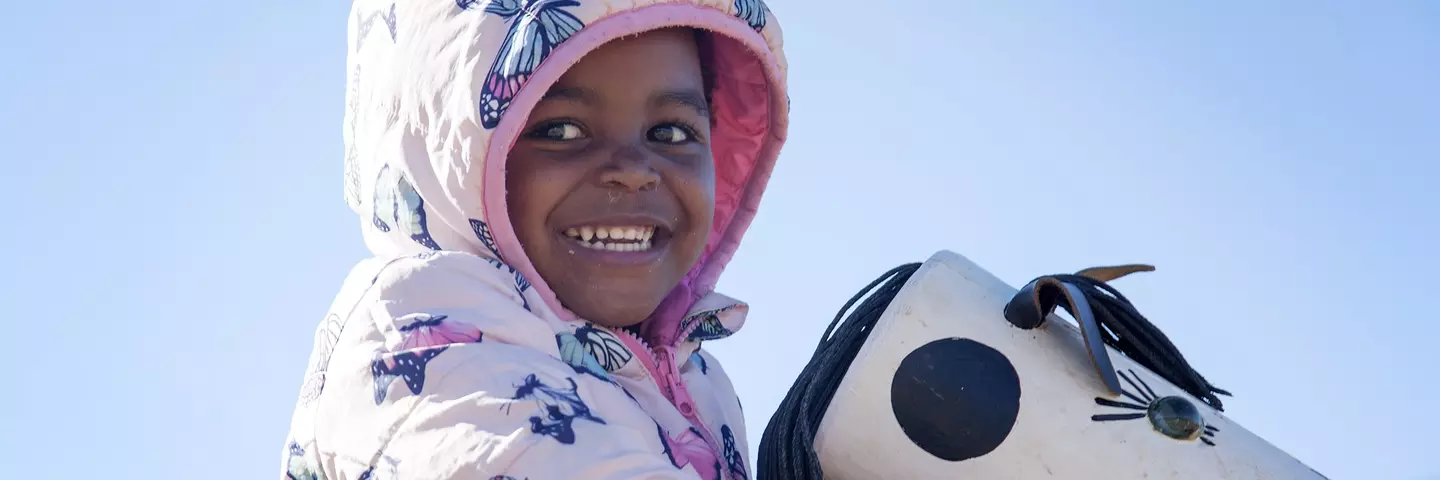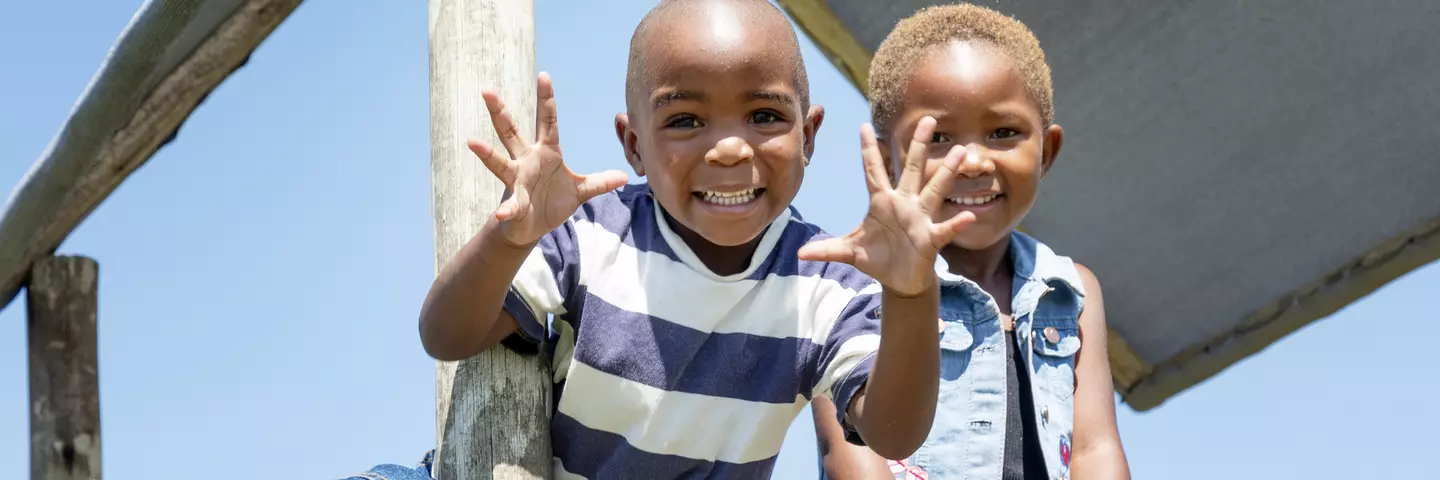
DAYCARE CENTERS IN SOUTH AFRICA – THE FOUNDATION FOR GOOD EDUCATION
Louisa Feiter, director of the Samara Foundation in South Africa, is committed to early childhood development (ECD) in Eastern Cape. Here she talks about successes, challenges and prospects.
What does the Samara Foundation stand for?
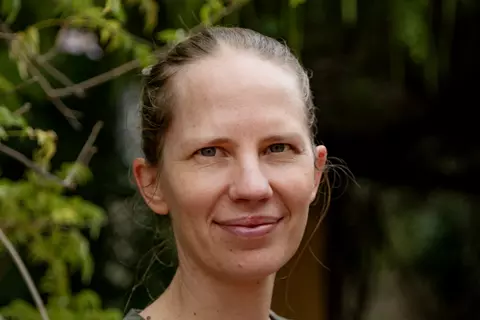
Louisa Feiter: The Foundation was established in 2017 to support ECD centers by providing infrastructure and educational resources. In past years our focus has shifted increasingly towards training the ECD caregivers, as this is where we see the long-term change happening for ECD centers. The daycare centers operate without government assistance and are largely left to their own devices. Although the ECD sector is now acknowledged as part of the Department of Education, the area of early childhood development still needs a lot of support, especially in rural areas. This remains our focus, but we now also work with some schools and are involved in the full cycle of education.
Who initiates ECD centers in these rural areas?
Louisa Feiter: Sometimes women open an ECD center on their own initiative. Most communities recognize the benefits of daycare and have a dedicated building for that, but proper support is lacking. And parents may not fully understand the importance of good childcare for their children. In some cases women returning to their villages, e.g. after working in big cities, are often more aware of the importance of early childhood development.
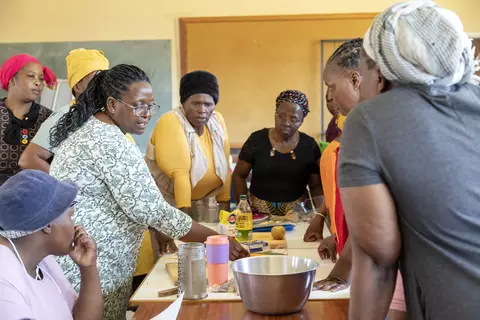
"WE FOCUS ON OFFERING PRACTICAL TRAINING FOR THE CAREGIVERS.“
What are the biggest challenges?
Louisa Feiter: The buildings are often run down, lacking maintenance, running water or electricity. Many centers have no playgrounds, or they are run-down. Sometimes there is just a building – but nothing in there. No carpets, tables and chairs for the children, mattresses for naptime or toys.
Once ECD centers have reached a certain level by fulfilling certain requirements, they can register with the government for support. But they don’t receive any support to get to that level. That’s a catch-22 situation! Once they have things such as toilets and a kitchen and have created a safe space, they can apply for government support. So we help bring them to that level.
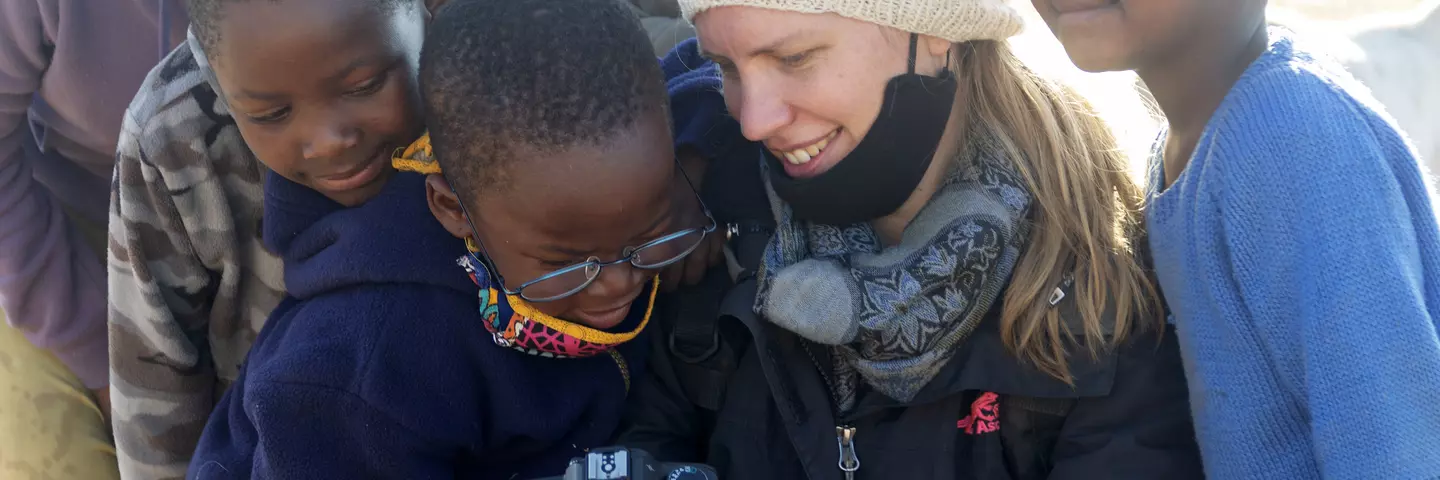
How do the caregivers continue their education?
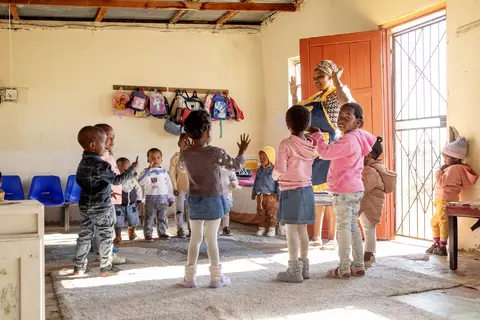
Louisa Feiter: Very often they rely on their experience from their own children. Wir haben einige Erzieherinnen darin unterstützt, eine staatlich anerkannte Qualifikation zu bekommen, aber das ist oft mit langen Wegen und Kosten verbunden. At Samara we decided to offer practical training for the caregivers we work with, as the government qualification is very theoretical and run in English, and therefore it is not accessible to everyone. We organize week-long workshops where we cover the basics of early childhood development and how children develop and learn best with many practical exercises and discussions; we also look at how to create a daily program, nutrition etc.
In one section we focus on the caregivers. They carry a lot on their shoulders and unknowingly bring this burden into the work with the children. We also make sure that each caregiver gets one-on-one mentoring at their center and feedback for their individual situation. We support and encourage sharing information and experiences on the WhatsApp groups among caregivers, and also use it to give further input when questions about specific behaviors or challenges come up. The workshops and mentoring visits are run by an experienced facilitator in Xhosa, the local language.
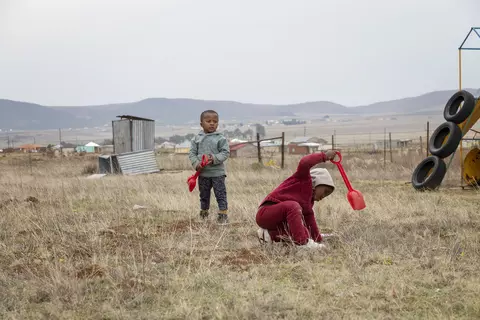
"SOMETIMES A DAYCARE CENTER CONSISTS OF JUST A BUILDING –
BUT NOTHING IN THERE.“
What are the projects for the months ahead?
Louisa Feiter: This year, 2025, we are continuing our work with approximately 25 ECD centers. They either receive infrastructure and resource support, or we provide training and mentoring for two groups of ECD caregivers in two different areas. Then we have the five primary schools based in Whittlesea which were supported by the Africa Runners 2024. Here we have various different infrastructure projects happening, and we will support them with literacy, math and science resources. ECD centers and even schools often approach us directly, which highlights the ongoing need for support.
